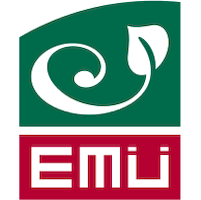The Institute of Veterinary Medicine and Animal Sciences of the Estonian University of Life Sciences (Eesti Maaülikool) (emu.ee/en/studies/doctoral-school/) opens a PhD position in the field of “Characterization of the effects of the embryonic extracellular vesicles on the maternal innate immune system”. The successful candidate will join the COMBIVET ERA Chair program and will be working under the supervision of Professor Alireza Fazeli.
Project scope
Embryo implantation is a crucial step in mammalian reproduction. The endometrial epithelium and the underlying stromal cells go through remarkable alterations to facilitate the process of implantation. During implantation process, embryo should be recognized as a foreign entity or “non-self” by the maternal immune system. However, the maternal immune system not only ignores this alien entity but also assists in the process of embryo implantation. The mechanisms of such action is not clearly understood. It is thought that the intercellular communications between the embryo and the endometrium at the time of implantation are important in inducing an immune tolerance.
A newly discovered mean of embryo-maternal communication is via extracellular vesicle (EV) mediated communications. EVs are a heterogeneous group of membrane bound small (diameter of 50-1000nm) biological structures known to be secreted by every known cell type. EVs take part in a multitude of molecular interactions with the target cells accomplishing a plethora of physiological functions including the regulation of innate immune responses.
The primary function of the innate immunity is to identify foreign entities such as pathogens or evidence molecules of cellular damage and initiating the proper immune reactions. It can be hypothesized that the immune ignorance/tolerance observed during implantation process could be the result of suppression or alteration of the innate immune modulation by EVs.
The main hypothesis to be tested during this studentship is that “Extracellular Vesicles are involved in mediating the maternal immune tolerance towards embryo at the time of implantation”. During the course of investigations, we will be characterizing the embryo derived EV surface proteome and the cargo molecules for potential interaction with innate immune system ligands of the maternal
Existing research resources
In the last few years, Fazeli Research Group have developed and optimized different methodologies for EV isolation and their characterization in terms of size, colloidal stability, morphology, surface proteome and molecular cargo [1-4]. The research group has also developed novel methods in EV tracking and uptake analysis, measuring the EV functionality, the specificity of the EVs to their target cells and the use of EVs in applied diagnostic and therapeutic settings.
The Fazeli group are actively involved in science dissemination for general public. We have so far organised three research schools entitled “Basics of working with EVs”, teaching over hundred young researchers and investigators from all over the globe.
Required qualification: Master’s degree in Medical Biology or Physiology or Molecular Biology or a related field. Experience in working with extracellular vesicles, cell culture and molecular biology technologies will be advantageous.
Required language skills: Good level of English: Recent TOEFL Certificate (only internet-based test scores are accepted, with the minimum score being 61); Recent IELTS Certificate (minimum score: 5.0); Recent First Certificate in English of the University of Cambridge; Recent PTE academic (minimum score 51); or An official certificate from the higher educational establishment if the medium of instruction was English during the whole period of studies.
Application documents: CV (Curriculum Vitae), copy of the Master’s degree certificate, and motivation letter in free format. See complete list at emu.ee/en/admissions/doctoral-studies/admission-requirements/
COMBIVET Research Group
Formed under the ERA Chair of Comparative Medicine, the COMBIVET Research Group is investigating the health challenges faced by both humans and animals. These include age-related diseases, cancer, neurodegenerative diseases, cardiovascular diseases, bone and joint diseases and metabolic diseases. Knowledge gained from studying and treating animals as well as human patients can be applied in developing new diagnostic tools, vaccines and therapies for both humans and animals. The research performed by the COMBIVET group aims to propel the Estonian University of Life Science as a leading European research organization in the field of comparative medicine.
COMBIVET ERA Chair project has received funding from the European Union’s Horizon 2020 research and innovation programme under grant agreement No 857418.
Institute of Veterinary Medicine and Animal Science (vl.emu.ee/en)
The Institute of Veterinary Medicine and Animal Sciences performs high-level modern teaching and R&D activities in the field of veterinary medicine, aquaculture, animal nutrition and production. Research involves almost all aspects of the “from farm to fork” production and processing chain of animal products.
Estonian University of Life Sciences (www.emu.ee/en)
Estonian University of Life Sciences is the only university in Estonia whose priorities in academic and research activities provide the sustainable development of natural resources as well as the preservation of heritage and habitat. According to QS World University Rankings by subject, the Estonian University of Life Sciences is one of top 50 universities in the world in the field of agriculture and forestry.
City of Tartu (visittartu.com)
Tartu, the City of Good Thoughts, is preponderantly a city of students and intellectuals. A statue of kissing students is welcoming from the large Classicist town square, nearby museums, cafes, bars and a large park formed around a hill. Tartu is the second largest city in Estonia, with around 100,000 inhabitants. It is very open to creative work and scientific culture, and always interesting events take place in the city.
ESTONIA (visitestonia.com/en/)
Estonia is located on the Baltic Sea shore, at the crossroads of Northern, Western and Eastern Europe. Since 2004 Estonia belongs to the European Union. Estonia attracts the visitors with its clean environment, diverse culture and excellent food. The landscape is covered with mires and bogs, fields and forests, limestone barrens and coastlines. Estonia has the largest collection of folk songs in the world. Music festivals and sports events connect culture and sports lovers from all over the world. Although Estonia may be the smallest of all Baltic countries, it more than makes up for this in different attractions.

 Continue with Facebook
Continue with Facebook

